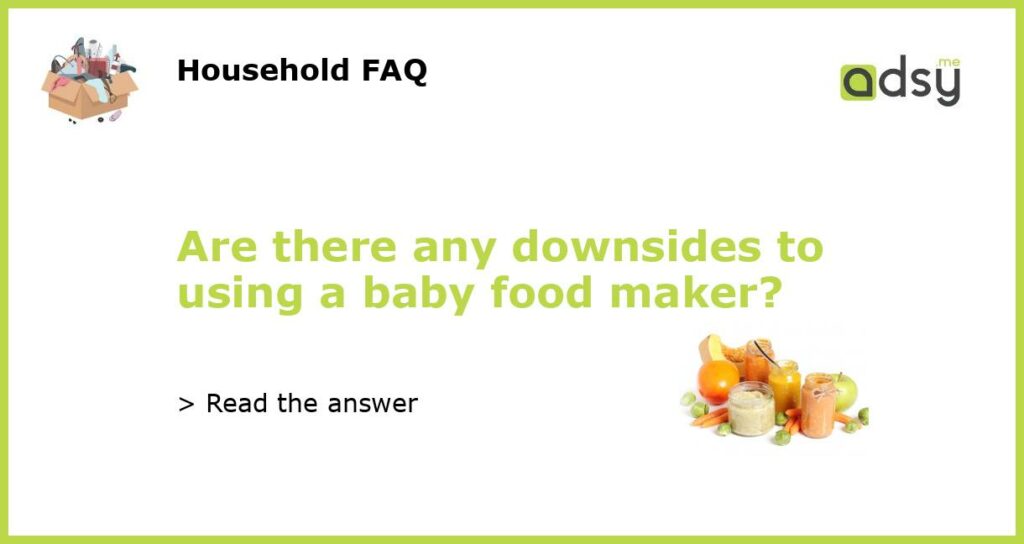Understanding the Popularity of Baby Food Makers
As more parents lean towards making their baby’s food from scratch instead of relying on store-bought options, baby food makers have become increasingly popular. These appliances offer the convenience of easy, homemade baby food in minutes. However, like any product, there are some drawbacks to consider before investing in a baby food maker.
Pros of using a Baby Food Maker
First, let’s start with the advantages of using a baby food maker. These appliances offer several benefits, including:
- Convenience: Baby food makers are designed to make the process of preparing homemade baby food quick and easy.
- Nutritious: Using fresh ingredients ensures that your baby’s food is packed with the nutrients they need.
- Cost-effective: Making your baby’s food from scratch can be more affordable than purchasing pre-made options regularly.
- Control: Knowing exactly what ingredients your baby’s food contains can give you peace of mind and control over their diet.
Cons of using a Baby Food Maker
While baby food makers offer many benefits, there are some disadvantages to consider. These include:
- Cost: Baby food makers can be expensive, ranging from $50 to over $200.
- Clean-up: As with any appliance, there is clean-up involved after using a baby food maker.
- Storage: Homemade baby food must be stored properly to prevent spoilage and bacteria growth, which can take up valuable fridge or freezer space.
- Quantity: Baby food makers typically make small batches, meaning you may need to repeat the process frequently.
- Limited food options: Some baby food makers have limited functionality, making it difficult to create a wide variety of baby food textures and consistencies.
Considering Alternatives
If the drawbacks of using a baby food maker outweigh the benefits for you, there are alternatives to consider. Some parents choose to simply puree food with a fork or blender, while others prefer pre-made baby food options. Both of these options have their own pros and cons, so it’s important to weigh them against each other based on your specific needs and preferences.
Making an Informed Decision
Ultimately, whether or not to invest in a baby food maker depends on your individual circumstances. While they offer convenience, nutrition, and cost-effectiveness, they also come with some downsides that may not be worth it for everyone. By weighing the pros and cons and considering alternative options, you can make an informed decision on whether a baby food maker is right for you and your baby.






